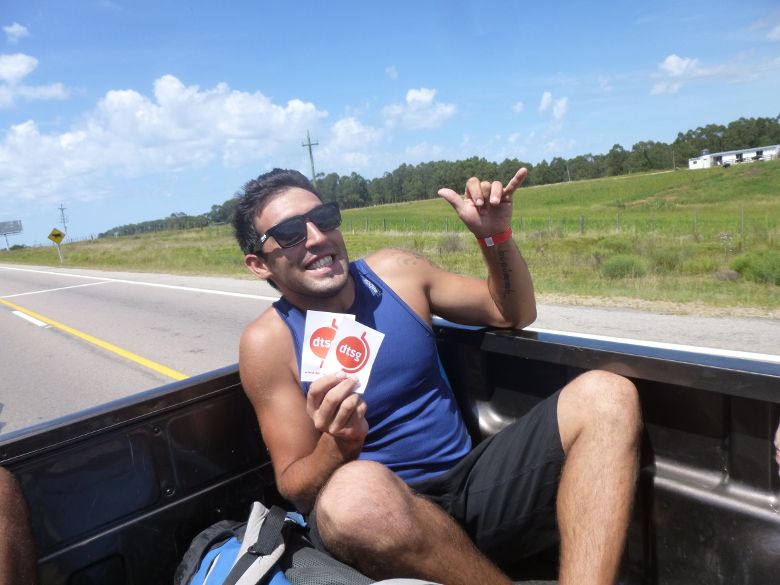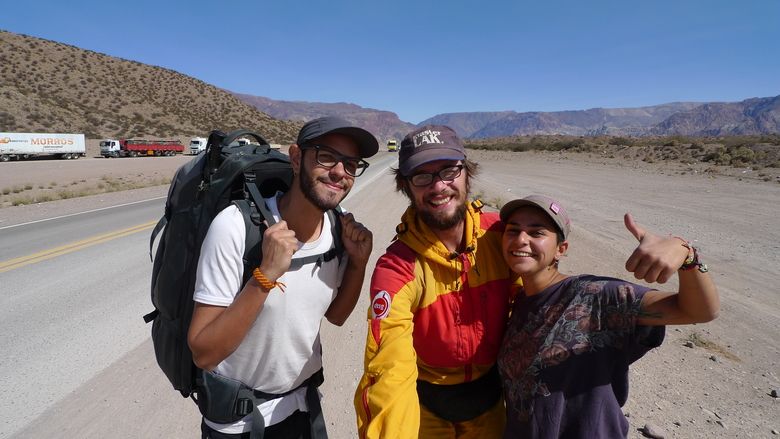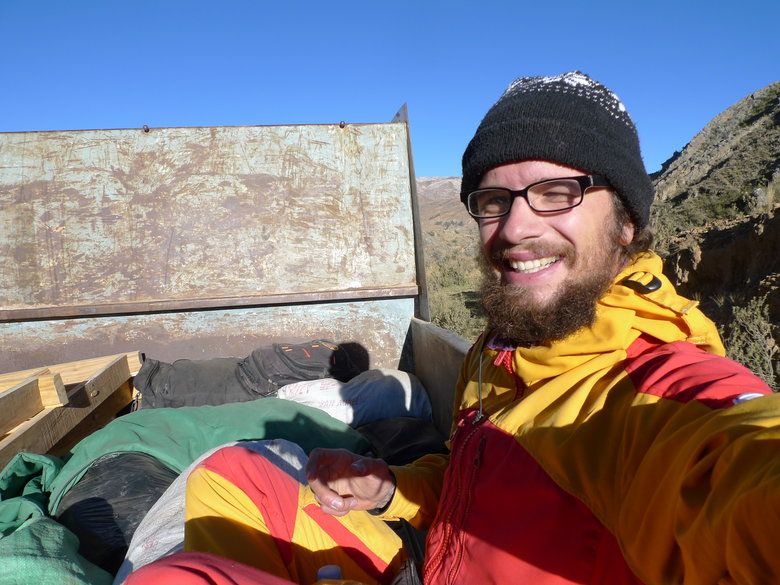I hitchhiked several long distances (4000-12.000km) in the past in different countries of our tiny little planet. I sat down just now, for one hour and did some calculations of my logs. Because it is fun. On my routes through America and Asia I always tried to beat my best time in Argentina from Buenos Aires to Rio Gallegos (2532km in 38h 49m; Ø65km/h). My fastest war in Kazachztan from Almaty to Aktöbe (2221 km in 32h 28m; Ø68km/h). Also in China I had a very good run from Dali to Harbin (4589 km in 82h 38m; Ø55 km/h)
If you go hitchhiking your speed is all about your technique. In day-time the advanced and not-advanced hitchhiker might move with more or less the same speed. But with the right equipment and technique you can also move through the night without any problem. There is less traffic, but therefore the cars will go further. More experienced hitchhikers use the night for their movement as well as the day.
On my „Royal Stage“ from New York to Alaska I achieved a very good time while rushing through Canada. I had one of my best runs going from Thousand Islands border USA/Canada to Otter Falls/Haines Junction in Yukon Territory. I did 6071 km in 107h 8m; Ø56 km/h. I think this is faster than driving by yourself. And since this tour had a acceptable length, I would like to call it my personal best time.
In the Russian hitchhiking school you calculate an average speed of 50km/h during summer-time and 40 km/h during wintertime. This counts for most of the developed countries like Iran, USA, Kanada, Russia, Germany, Argentina, etc. The calculation has to be adapted if you move through mountainous territory with serpentines. In general the road is getting slower the higher it is. In technically more difficult regions your covered distance can drop down to 200-300km per day. I experienced that, when I hitchhiker through the Bolivian high plateaus.
The longer your tour is, the harder it is to keep up the speed. If I would have traveled only 3 km/h less on my Canada crossing, that would have meant in the end 321 km less distance. 3 km/h less sounds not much, but it really makes the difference in the end.
When I started hitchhiking we always calculated with twice of the normal driving time (if you drive by yourself, including rest and sleeping breaks). For beginners this is a good landmark, which is easy to achieve. If you fail this, you do something wrong. But in my covered routes through Asia, as South and North America, you can see, that the Russian calculation is realistic, especially if you move a longer distance.
If you hitchhike alone you will always be slightly faster than going as a couple. With three person your average speed will drop significantly. Border crossings are always different, but you can calculate an average delay of one our, when getting into a new territory. Crossing cities is a big issue and you should calculate around two hours more, than the normal driving time, especially if you need to fight your way through a Moloch like La Paz or Panama City. With or without public transport. Crossing cities is one of the hardest things to do and you can lose much more time here, if you are an unexperienced hitchhiker.
The more experienced the hitchhiker is, the less will be the difference in the movement speed between each other. And this is independent from age or gender. Who argues, that you hitchhike faster with a woman, just because she is a woman, has not enough own experience to convince drivers to stop. And if one of my female hitchhiking comrades is hitchhiking faster than me, then it is about her advanced technique and not about her pussy.
In general I want to show with this article, that hitchhiking is able to be scheduled and your speed is most dependent on your skill. This includes body language, clothing, attitude, gesture, facial expression, how good your communication is and how charming you can make cars to stop. Also your positioning is very important and that you avoid tactical mistakes like, letting the driver decide where to put you or taking rides that won’t bring you any advantage. All that are parameters which affect your speed and they are much more important than pure luck. Who argues that hitchhiking is about luck might not know how to hitchhike properly.





